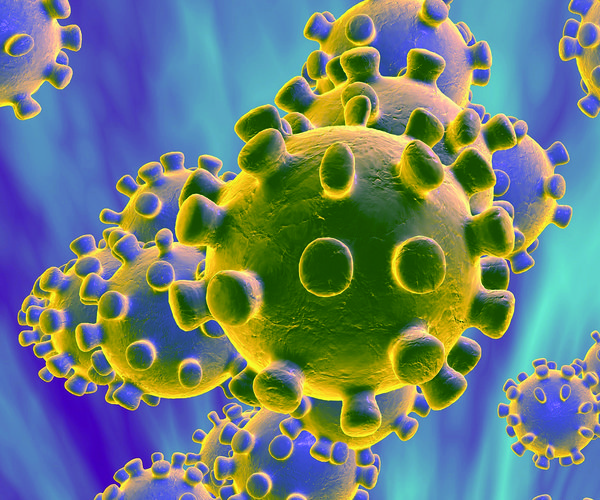By WILL WEISSERT and KEVIN FREKING Associated Press
WASHINGTON (AP) — America's surgeon general raised the specter of the gravest attacks against the nation in modern times to steel an anxious country Sunday for the impending and immeasurable sorrow he said would touch untold numbers of families in the age of the coronavirus. The government's top infectious disease expert urged vigilant preparation for a virus that is unlikely to be wiped out entirely in the short term and may emerge again in a new season.
The blunt assessments show just how much has changed in the weeks since President Donald Trump's predictions that the virus would soon pass, and his suggestions that much of the economy could be up and running by Easter, April 12. But they also point to the suffering and sacrifice ahead until the pandemic begins to abate.
The nation's top doctor, Surgeon General Jerome Adams, said Americans should brace for levels of tragedy reminiscent of the Sept. 11 terrorist attacks and the bombing of Pearl Harbor.
The number of people infected in the U.S. has exceeded 300,000, with the death toll climbing past 9,000. Nearly 4,200 of those deaths are in the state of New York, but a glimmer of hope there came on Sunday when Democratic Gov. Andrew Cuomo said his state registered a small dip in new fatalities over a 24-hour period. Still, Louisiana Gov. John Bel Edwards said his state may run out of ventilators by week's end.
Former Vice President Joe Biden suggested his party's presidential nominating convention, already pushed from July into August because of the outbreak, may have to move fully online to avoid packing thousands of people into an arena in Milwaukee. Also, the Defense Department released new requirements that all individuals on its property "will wear cloth face coverings when they cannot maintain six feet of social distance in public areas or work centers."
The most dire warning, though, came from Adams, who noted it was Palm Sunday, which starts the Christian holy week that concludes with Easter Sunday.
"This is going to be the hardest and the saddest week of most Americans' lives, quite frankly," Adams said. "This is going to be our Pearl Harbor moment, our 9/11 moment, only it's not going to be localized. It's going to be happening all over the country. And I want America to understand that."
For most people, the virus causes mild or moderate symptoms, such as fever and cough that clear up in two to three weeks. For some, especially older adults and people with existing health problems, it can cause more severe illness, including pneumonia, and death.
Dr. Anthony Fauci, director of the National Institute of Allergy and Infectious Diseases, said the toll in the coming week is "going to be shocking to some, but that's what is going to happen before it turns around, so just buckle down."
He also said the virus probably won't be wiped out entirely this year, and that unless the world gets it under control, it will "assume a seasonal nature."
"We need to be prepared that, since it unlikely will be completely eradicated from the planet, that as we get into next season, we may see the beginning of a resurgence," Fauci said. "That's the reason why we're pushing so hard in getting our preparedness much better than it was."
Trump has backed away from comments weeks earlier that large swaths of American life would resume by Easter. The president had no public events on his schedule Sunday after a series of two-hour daily briefings on the outbreak. However, the White House updated the president's and vice president's schedules in the evening to show that a 7 p.m. news conference would take place after all.
"Talks & meetings today are proving promising, but a rough two weeks are coming up!" Trump tweeted.
Much of the country is under orders to stay home, and federal officials said they have seen signs that people are listening to the message about social distancing. A few states, however, have declined to issue such orders and Adams was asked whether they should join the rest of the country.
"Ninety percent of Americans are doing their part, even in the states where they haven't had a shelter in place," Adams said. "But if you can't give us 30 days, governors, give us, give us a week, give us what you can, so that we don't overwhelm our health care systems over this next week."
Arkansas Gov. Asa Hutchinson, who has not issued a stay-at-home order, said federal officials who have urged them are "just looking at the nation as a whole."
"But whenever you look at our state, I think Dr. Fauci would be very pleased with the fact that we are beating some of our other states in reducing the spread and the commitment that we have to working every day to accomplish that," Hutchison said.
Illinois Gov. J.B. Pritzker, who was among the first in the nation to issue orders that his state's residents stay home, suggested the federal government should step in and make the remaining states follow suit.
"This virus knows no borders. And so it was up to the federal government, to begin with, to advise and to ask all the governors to put in stay-at-home orders," Pritzker said. "Those governors, Republican governors, would have done it much earlier if the president had suggested it much earlier."
Adams appeared on "Fox News Sunday" and NBC's ``Meet the Press." Fauci was on CBS' "Face the Nation." Biden was interviewed on ABC's "This Week" while Hutchinson was on NBC. Pritzker and Edwards were on CNN's "State of the Union."





